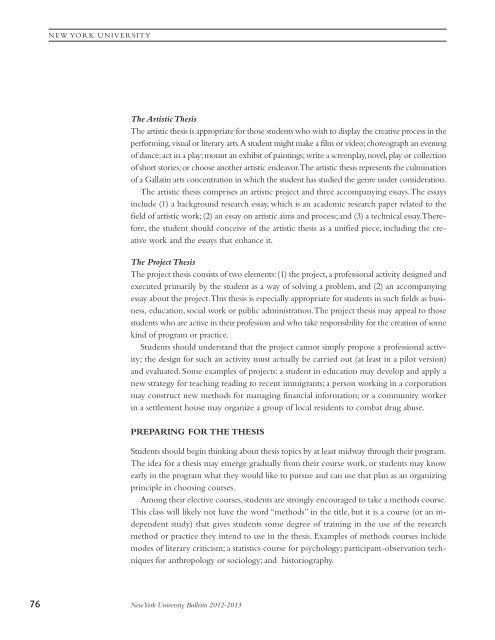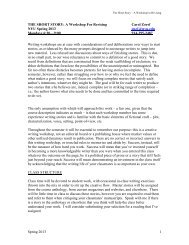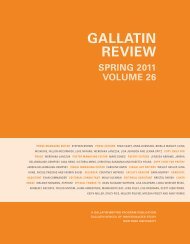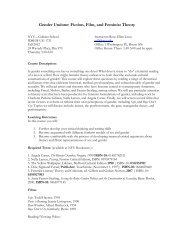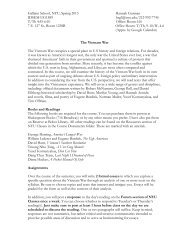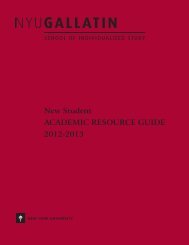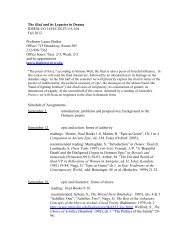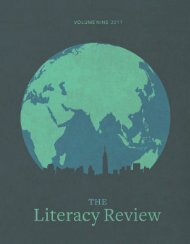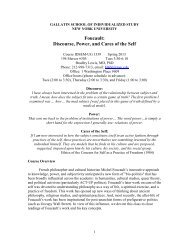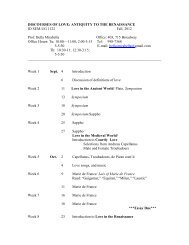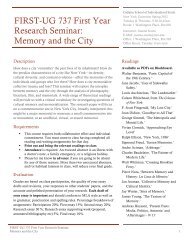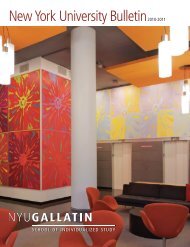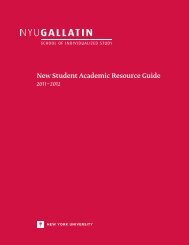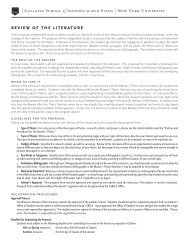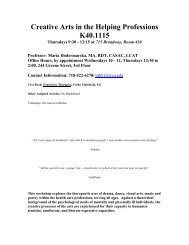New York University Bulletin - Gallatin School of Individualized ...
New York University Bulletin - Gallatin School of Individualized ...
New York University Bulletin - Gallatin School of Individualized ...
You also want an ePaper? Increase the reach of your titles
YUMPU automatically turns print PDFs into web optimized ePapers that Google loves.
NEW YORK UNIVERSITYThe Artistic ThesisThe artistic thesis is appropriate for those students who wish to display the creative process in theperforming,visual or literary arts.A student might make a film or video;choreograph an evening<strong>of</strong> dance;act in a play;mount an exhibit <strong>of</strong> paintings;write a screenplay,novel,play or collection<strong>of</strong> short stories;or choose another artistic endeavor.The artistic thesis represents the culmination<strong>of</strong> a <strong>Gallatin</strong> arts concentration in which the student has studied the genre under consideration.The artistic thesis comprises an artistic project and three accompanying essays.The essaysinclude (1) a background research essay, which is an academic research paper related to thefield <strong>of</strong> artistic work; (2) an essay on artistic aims and process; and (3) a technical essay.Therefore,the student should conceive <strong>of</strong> the artistic thesis as a unified piece, including the creativework and the essays that enhance it.The Project ThesisThe project thesis consists <strong>of</strong> two elements:(1) the project,a pr<strong>of</strong>essional activity designed andexecuted primarily by the student as a way <strong>of</strong> solving a problem, and (2) an accompanyingessay about the project.This thesis is especially appropriate for students in such fields as business,education, social work or public administration.The project thesis may appeal to thosestudents who are active in their pr<strong>of</strong>ession and who take responsibility for the creation <strong>of</strong> somekind <strong>of</strong> program or practice.Students should understand that the project cannot simply propose a pr<strong>of</strong>essional activity;the design for such an activity must actually be carried out (at least in a pilot version)and evaluated. Some examples <strong>of</strong> projects: a student in education may develop and apply anew strategy for teaching reading to recent immigrants; a person working in a corporationmay construct new methods for managing financial information; or a community workerin a settlement house may organize a group <strong>of</strong> local residents to combat drug abuse.PREPARING FOR THE THESISStudents should begin thinking about thesis topics by at least midway through their program.The idea for a thesis may emerge gradually from their course work, or students may knowearly in the program what they would like to pursue and can use that plan as an organizingprinciple in choosing courses.Among their elective courses, students are strongly encouraged to take a methods course.This class will likely not have the word “methods” in the title, but it is a course (or an independentstudy) that gives students some degree <strong>of</strong> training in the use <strong>of</strong> the researchmethod or practice they intend to use in the thesis. Examples <strong>of</strong> methods courses includemodes <strong>of</strong> literary criticism; a statistics course for psychology; participant-observation techniquesfor anthropology or sociology; and historiography.76 <strong>New</strong><strong>York</strong> <strong>University</strong> <strong>Bulletin</strong> 2012-2013


